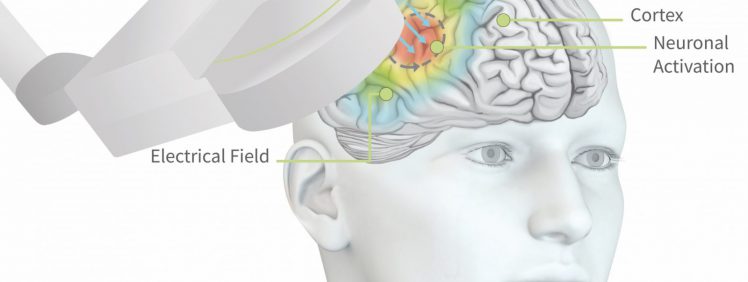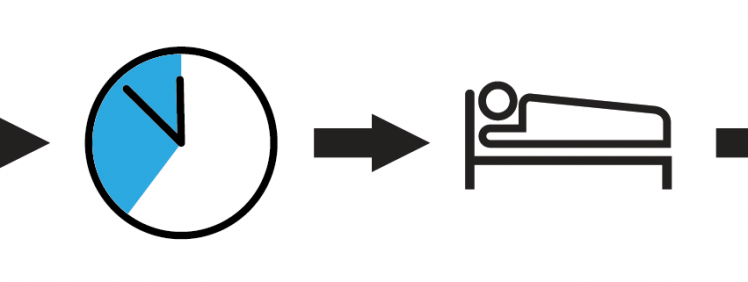[vc_row][vc_column][vc_column_text][WP-Coder id="1"] [/vc_column_text][/vc_column][/vc_row][vc_row][vc_column][vc_column_text] Application of brain research in prescribing antidepressants successful [/vc_column_text][vc_column_text el_class="maintext"]Nijmegen, January 26, 2021 - The success rate of antidepressants in the treatment of depression can be greatly improved thanks to the use of a short brain examination (EEG) prior to treatment. A study conducted in the Netherlands examined, for the first time, the use of EEG as a biomarker in practice. Beyond the 'one-size-fits-all' approach Until now, the choice for a specific antidepressant was mainly made based on experience and estimation of the prescribing physician. The probability of successful treatment is known to be 30-40%, yet there...
Seasonal influence on clinical response to Ritalin in ADHD

[vc_row][vc_column][vc_column_text][WP-Coder id="1"] [/vc_column_text][/vc_column][/vc_row][vc_row][vc_column][vc_column_text] Seasonal influence on clinical response to Ritalin in ADHD [/vc_column_text][/vc_column][/vc_row][vc_row][vc_column][vc_empty_space height="50px"][vc_column_text el_class="maintext"]Nijmegen, November 25th 2019 – A large global study in which researchers from Research Institute Brainclinics in Nijmegen, Utrecht University and Leiden University collaborated with scientists in the United States and Australia has revealed a surprising insight: how well patients with ADHD respond to treatment with Ritalin seems to depend on the season in which treatment starts. This probably depends on changes in sunlight that affect the biological clock. Sunlight intensity has a major influence The researchers involved had previously discovered that ADHD is relatively rare...
The Circadian Phenotype of ADHD explained; an Infographic
[vc_row][vc_column][vc_column_text] circadian rhythms [WP-Coder id="1"][/vc_column_text][vc_column_text][pdf-embedder url="https://brainclinics.com/wp-content/uploads/2019/09/web_circadian_phenotype.pdf"] circadian rhythm infographic[/vc_column_text][vc_row_inner][vc_column_inner][vc_column_text]Brainclinic's Martijn Arns and Madelon Vollebregt will present a poster showing the latest insights into the circadian phenotype of ADHD at the EUNETHYDIS conference in Nijmegen on Thursday, September 19, 2019 [/vc_column_text][/vc_column_inner][/vc_row_inner][/vc_column][/vc_row][vc_row][vc_column][vc_column_text] The Circadian Phenotype of ADHD explained; an Infographic [/vc_column_text][vc_column_text]Vollebregt, M.A., Koppenberg, M., Arns, M.[/vc_column_text][vc_column_text el_class="maintext"] circadian rhythms Daylight is the strongest synchronizer of human circadian rhythms. When daylight reaches the retina, it provides the internal clock system [suprachiasmatic nuclei (SCN)] with information about the time of day, thereby leading to daylight entrainment. Even modest misalignment of the internal clock from...
biomarker bij depressie

[vc_row][vc_column][vc_column_text][WP-Coder id="1"] [/vc_column_text][/vc_column][/vc_row][vc_row][vc_column][vc_column_text] Kort hersenonderzoek maakt passende behandeling van depressie mogelijk en vergroot snelle kans van slagen [/vc_column_text][/vc_column][/vc_row][vc_row][vc_column][vc_empty_space height="50px"][vc_column_text el_class="maintext"]Nijmegen, 6 september, 2019 - Een eenvoudig en kort EEG-onderzoek kan een belangrijk hulpmiddel zijn bij het voorschrijven van de juiste medicatie bij depressieve klachten, blijkt uit een nieuw onderzoek van Nikita van der Vinne en collega’s in het Journal of Affective Disorders. Biomarkers als richtingaanwijzer bij behandeling Doorgaans worden patiënten met depressieve klachten behandeld met antidepressiva zoals escitalopram, venlafaxine of sertraline. De behandelend psychiater maakt, bijvoorbeeld op basis van ervaring, de keuze met welk antidepressivum gestart wordt. Als er een...
consensusverklaring

[vc_row][vc_column][vc_column_text][WP-Coder id="1"] [/vc_column_text][/vc_column][/vc_row][vc_row][vc_column][vc_column_text] Paradigmaverschuiving binnen de psychiatrie: Standaarden voor magnetische hersenstimulatie bij depressie [/vc_column_text][vc_column_text el_class="maintext"]Nijmegen, 18 juni 2019 –Na meer dan 30 jaar onderzoek naar transcraniële magnetische hersenstimulatie (rTMS) bij de behandeling van depressie, dringt deze techniek steeds verder door in de psychiatrische en psychologische behandelpraktijk. Om die reden hebben verschillende onderzoekers en instanties (waaronder Onderzoeksinstituut Brainclinics, NedKAD en de hersenstimulatiestichting) zojuist een consensusverklaring gepubliceerd in het tijdschrift voor psychiatrie. Deze verklaring dient ter verduidelijking van de rol en plek van magnetische hersenstimulatie bij de behandeling van depressie maar ook als handvat om deze techniek effectief en veilig toe te...
Zeven voor leven

[vc_row][vc_column][vc_column_text] Sponsoring groot succes [/vc_column_text][vc_column_text el_class="maintext"]Het Brainclinics-Vidacto team droeg ruim duizend euro bij aan het totaal van €167.612,- dat de Zeven voor Leven sponsorrit bijeenbracht voor de Stichting Kanker Zien. Na afloop van de sponsorrit spraken we kort met Martijn Arns, oprichter van Brainclinics en ploegleider van het wielerteam. Gefeliciteerd met jullie prestatie! Hoe ging het? Dankjewel! Het viel 100% mee. De rit zelf was best stevig, 140 kilometer in totaal, en door het hoogteverschil van het parcours hebben we 2000 meters geklommen. De moraal was goed en bleef dat ook. Hoe hoog eindigden jullie in het klassement? Het mooie...
The relationship between sleep and ADHD

[vc_row][vc_column][vc_column_text el_class="maintext"][WP-Coder id="1"] Nijmegen, April 23rd, 2019 - Dutch researchers from Research Institute Brainclinics in Nijmegen and PsyQ, (Kenniscentrum ADHD bij volwassenen) in The Hague, discovered a striking link between light, sleep and ADHD, as can be read in two recent scientific publications. They published a study showing that ADHD can be a cause or a consequence of a disturbed sleep-wake rhythm. This new insight can be of great importance in the treatment of ADHD. The importance of sleep Three out of four adults and children (± 75%) with ADHD have difficulty falling asleep. This sleep-wake disorder has major consequences...
racing against cancer
[vc_row][vc_column][vc_column_text el_class="maintext"]Nijmegen, 19 April 2019 - Brainclinics and Vidacto join forces to race towards a cancer-free future! Zeven voor Leven (Seven for Life) May 26, 2019, the cycling challenge Zeven voor Leven (Seven For Life) will be held for the first time in the hilly landscape around the municipality of Berg en Dal. The proceeds of the cycling round will go entirely to the Stichting Kanker Zien (Spot Cancer Foundation). The foundation wants to be able to diagnose cancer at an earlier stage and treat tumors in a more targeted way. This also improves the quality of life after treatment....
Brain activity predicts response to Ritalin in ADHD
[vc_row][vc_column][vc_column_text][WP-Coder id="1"] [/vc_column_text][/vc_column][/vc_row][vc_row][vc_column][vc_column_text] Brain activity predicts response to Ritalin in ADHD; Implications for male-female differences [/vc_column_text][vc_column_text el_class="maintext"]Nijmegen, July 3rd, 2018 – Today results from the large multicenter iSPOT-A study were published in European Neuropsychopharmacology, demonstrating that brain activity can assist in predicting response to Ritalin in male adolescents with ADHD. In addition, this study clearly demonstrated gender differences in brain activity, where brain activity only predicted Ritalin response in males and not in females with ADHD. No differences in brain activity were found between children with and without ADHD, further demonstrating the value of brain imaging in prognosis rather than diagnosis....
Meta-analysis confirms sustained effects of neurofeedback
[vc_row][vc_column][vc_column_text][WP-Coder id="1"] [/vc_column_text][/vc_column][/vc_row][vc_row][vc_column][vc_column_text] Meta-analysis confirms sustained effects of neurofeedback in children with ADHD [/vc_column_text][vc_column_text el_class="maintext"]Nijmegen, February 16th, 2018 - An international group of researchers conducted a meta-analysis that systematically looked at all available studies and found that after an intensive course of neurofeedback, the clinical benefit of neurofeedback on ADHD symptoms was maintained over a 6-month follow-up period (without treatment). At follow-up the effects of neurofeedback were not inferior to active treatments such as medication, whereas benefits for non-active control groups (such as cognitive training) were no longer present at follow-up. These results have now been published in the scientific...
